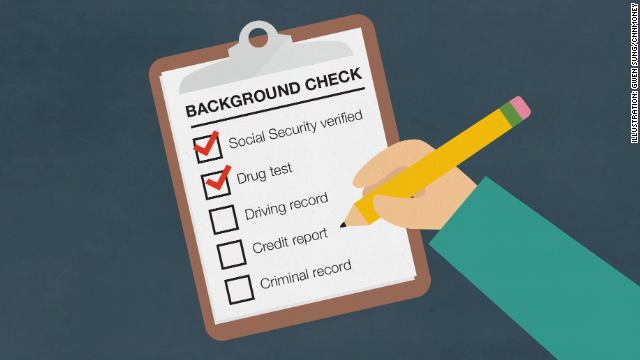A criminal background check is conducted to determine if a person has a criminal past. Most criminal convictions are reported on a person’s record, but some crimes are less severe than others. Misdemeanors, for instance, are much less potent than felonies. Moreover, some crimes are expunged from a person’s record.
Information Reported on a Criminal Background Check
The information reported on a background criminal check can vary based on the laws in the state in which the person was convicted of a crime. Although most states allow the reporting of convictions, some restrict the information that can be reported. For example, California and Maryland only say convictions within seven years of the date of the arrest. New Mexico and New York prevent reporting beliefs that are more than seven years old.
To protect employers, following the laws governing pre-employment background checks is essential. If the employer finds out that a job applicant has a criminal record, they may be prohibited from hiring the person. In addition, Title VII of the Civil Rights Act of 1964 forbids employers from applying criminal information to discriminate against job applicants. The Equal Employment Opportunity Commission is enforcing these laws.
The information reported on a criminal background check is helpful for hiring new employees and can also help protect your company from fraud. Whether hiring a new employee or chatting online with a new acquaintance, you’ll want to ensure the person’s identity is genuine. Performing a criminal background check can also reveal whether a candidate has any pending cases or has been incarcerated as an adult.
Misdemeanors are Less Severe Than Felonies
Misdemeanors involve nonviolent offenses such as trespassing, petty theft, vandalism, and disorderly conduct. Penalties for misdemeanor convictions can include fines, incarceration, community service, probation, and restitution.
A misdemeanor conviction is less severe than a felony, but it can affect your ability to get a job. While you have the right to keep your criminal conviction private, it may help your application if you disclose it yourself. The EEOC advises employers to give a misdemeanor applicant a chance to explain the circumstances of the conviction.
While misdemeanors are less severe than felony offenses, there are still significant differences between the two. A misdemeanor conviction may only result in a fine, but a felony conviction can result in life imprisonment or even the death penalty. In addition, felonies often involve intent, which can lead to more severe penalties.
While misdemeanors are less severe than felony convictions, they can still result in jail time and fines in the hundreds of thousands of dollars. A misdemeanor conviction can also result in a probationary period of up to one year. Misdemeanors can also have a fine as high as double the offender’s gain from the crime.
Federal and State Laws Govern Criminal Background Checks
Employers use criminal background checks to determine whether employees are trustworthy and safe. These investigations can be pretty thorough, involving searches of several databases and all levels of government. These searches are essential to ensure a harmonious and secure workplace. However, the employer should follow the proper procedures and obtain the candidate’s consent before conducting a background check.
The Fair Chance Act, which protects the rights of people with criminal records, applies to employment background checks. This act prohibits private and public employers from discriminating against job applicants convicted of a crime. The EEOC also provides guidelines for assessing criminal history, which employers should consider in the job application. For companies with four or more employees, the Fair Chance Act, which became effective in New York City on January 6, 2020, applies.
94 national court databases are searched for federal background checks. These documents look for current and former federal criminal investigations. Robbery, kidnapping, counterfeiting, tax evasion, and identity theft are some of these offenses. Various government agencies, not the FBI, conduct these searches.
What Should Not Be Included in a Criminal Background Check
A criminal background check should contain only information relevant to the job the applicant is applying for. It should be conducted by a reputable vendor with the resources to find information from reliable sources. The information included in the report is determined by the nature of the job, the industry in which the applicant will work, and the applicable laws. The information that may appear on a criminal background check includes felony and misdemeanor convictions, arrest records, and incarceration records.
Criminal convictions older than seven years will typically not appear on a criminal background check. However, criminal records that were previously sealed or expunged can often be removed from a background check. There are also state-specific rules about when a criminal record can be closed. Researching these laws carefully is recommended because they differ from state to state.
Most employers perform criminal background checks as a standard hiring process. This information is vital for keeping a safe work environment and preventing on-the-job incidents. It also protects an organization’s assets and reduces the risk of lawsuits, fines, and fees. A criminal background check can reveal detailed information about an applicant’s criminal history and identity. This information is especially relevant for positions in financial services and working with vulnerable populations. Anyone with an account of illegal activities should not be trusted to work for a company that depends on its integrity.





